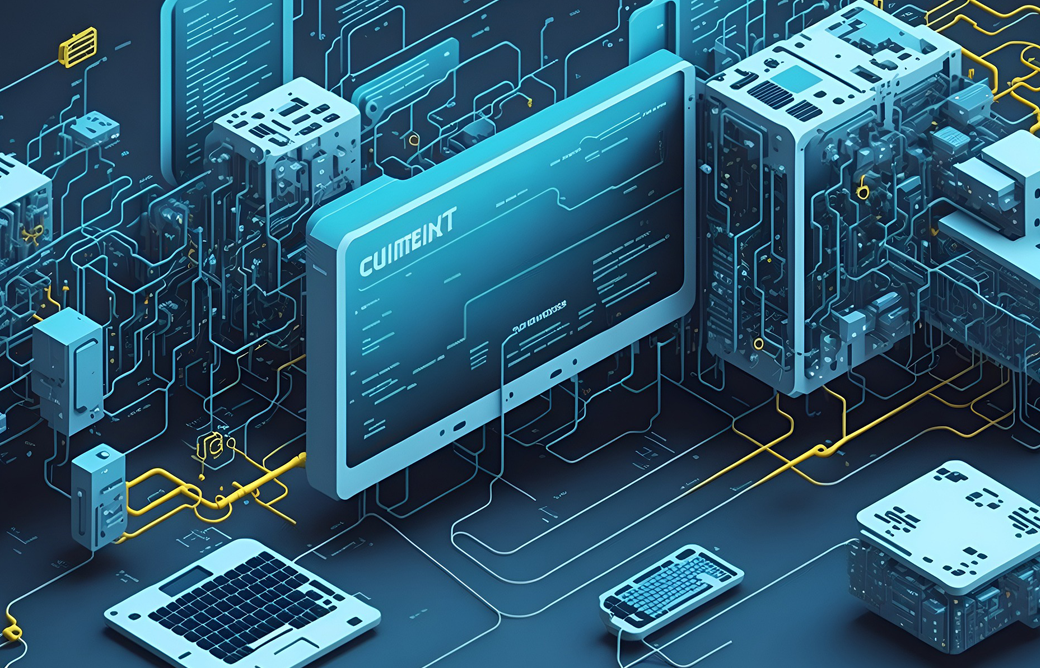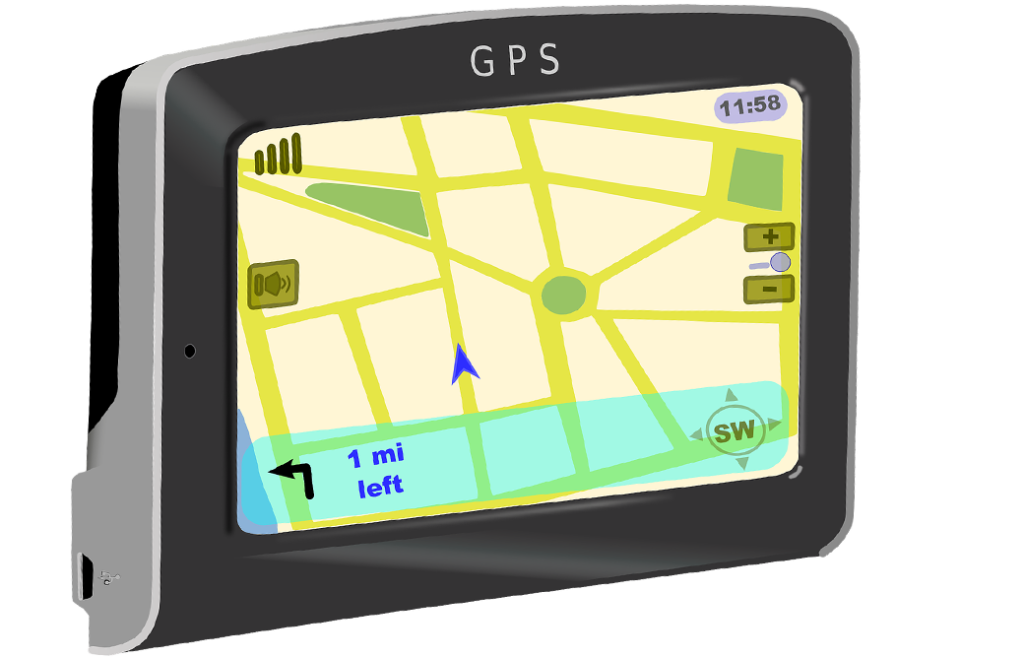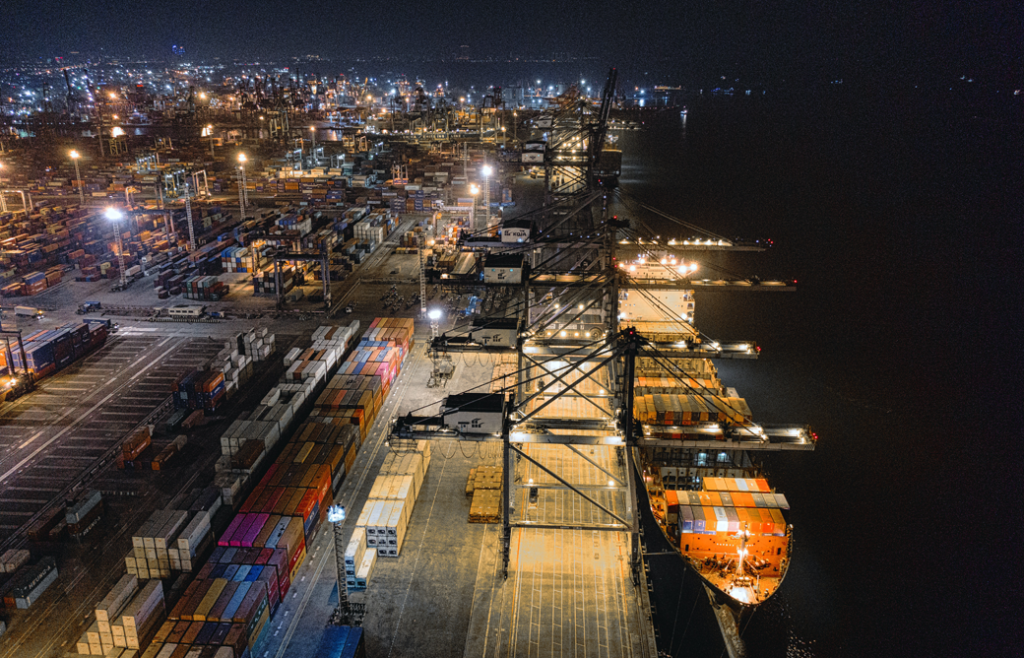
In the ever-evolving realm of freight transportation, technological advancements have emerged as catalysts of profound transformation. From automating laborious tasks to redefining operational landscapes, these innovations are reshaping the industry as we know it.
In this blog post, we delve into the dynamic world of freight transportation and explore the pivotal role played by technology. Buckle up as we embark on a thrilling journey through the realms of Technological Advancements in Freight Transportation, uncovering their tremendous impact on the industry, and unveiling the fascinating realm of automation and robotics.
In the fast-paced realm of freight transportation, where speed, efficiency, and reliability reign supreme, technological advancements have emerged as the driving force behind transformative changes. With breakthrough innovations and cutting-edge solutions, the industry is on the cusp of a revolution that promises to redefine the way goods are transported across the globe.
In this blog post, we embark on a thrilling journey through the world of freight transportation, exploring the profound impact of technological advancements and shedding light on the game-changing developments that are reshaping the landscape.
In an era where time is of the essence, technological advancements have become the cornerstone of progress in the freight transportation industry. Here are some key areas where technology is leaving an indelible mark:
The Impact of Technological Advancements in Freight Transportation
The fusion of technology and freight transportation is creating a ripple effect across the industry. Here are some noteworthy impacts:
As we traverse the terrain of freight transportation, one thing becomes abundantly clear: technological advancements are reshaping the industry in unprecedented ways. From connected systems and data-driven decision making to automation, robotics, and AI-powered logistics, every aspect of the freight transportation ecosystem is being revolutionized.
Embracing these advancements not only ensures operational efficiency and improved safety but also paves the way for a sustainable future. So, fasten your seat-belts and get ready for the exhilarating journey ahead as technology propels the freight

In the realm of freight transportation, a paradigm shift is underway. As the industry races against time to meet evolving demands, automation and robotics have emerged as formidable titans, driving unprecedented transformation.
In this blog post, we embark on an exhilarating journey through the world of freight transportation, exploring the awe-inspiring realm of automation and robotics. Buckle up as we unravel the remarkable ways in which these cutting-edge technologies are reshaping the landscape, boosting efficiency, and propelling the industry into a new era.
In a landscape where speed, precision, and reliability are paramount, automation and robotics have become the dynamic duo that propels freight transportation to unparalleled heights. Here’s a closer look at how these transformative technologies are reshaping the industry:
The integration of automation and robotics into freight transportation bestows a myriad of benefits, forever altering the industry’s landscape. Here are some notable impacts:
As automation and robotics firmly establish their dominion in the realm of freight transportation, the industry enters a new era defined by unprecedented efficiency and innovation. With automated warehousing, autonomous vehicles, and intelligent cargo handling, the boundaries of what is possible continue to expand.
Embracing these cutting-edge technologies holds the key to unlocking boundless potential, empowering freight transportation companies to overcome challenges and deliver goods with unparalleled speed and precision. So, fasten your seatbelts as we venture into this era of transformative power, where automation and robotics reign supreme, forever changing the face of freight transportation.

In the digital age, where connectivity and real-time data reign supreme, the Internet of Things (IoT) has emerged as a groundbreaking force in the realm of freight transportation. With a web of interconnected devices and sensors, IoT is revolutionizing the way goods are transported, monitored, and managed.
In this blog post, we embark on an exciting journey through the transformative landscape of IoT in freight transportation. Prepare to be amazed as we unveil the remarkable ways in which this powerful technology is reshaping the industry, optimizing operations, and enhancing visibility like never before.
Imagine a world where every component of the supply chain is seamlessly interconnected, transmitting valuable data in real-time. This is precisely the world that IoT is ushering into the realm of freight transportation. Let’s explore how this technology is propelling the industry forward:
The integration of IoT into freight transportation has unleashed a wave of transformative impact across the industry. Here are some notable benefits:
As the freight transportation industry embraces the IoT revolution, a new era of efficiency, visibility, and operational excellence dawns. By harnessing the power of interconnected devices and data-driven insights, companies can unlock significant advantages.
From optimized route planning to proactive maintenance and enhanced supply chain visibility, the IoT paves the way for a future where freight transportation is smarter, safer, and more sustainable. So, fasten your seatbelts and embark on this transformative journey as IoT ushers in a new era of limitless possibilities in the realm of freight transportation.
Artificial Intelligence (AI) has emerged as a game-changer in the realm of freight transportation. With its ability to analyze vast amounts of data, make predictions, and automate processes, AI is revolutionizing the industry, propelling it towards unparalleled levels of efficiency and innovation.
We will embark on a thrilling journey through the world of AI in freight transportation. Brace yourself as we unveil the remarkable ways in which this transformative technology is reshaping the industry, optimizing operations, and driving us towards a future of smarter and more sustainable logistics.
Imagine a world where logistics operations are guided by intelligent algorithms, where machines learn from experience, and where decisions are made with remarkable precision. This is the world that AI is creating in the realm of freight transportation. Let’s explore some key areas where AI is making its mark:
The integration of AI into freight transportation is revolutionizing the industry in remarkable ways. Here are some notable impacts:
As AI continues to reshape the landscape of freight transportation, a new era of intelligence and efficiency unfolds. With smart logistics planning, predictive analytics, and intelligent route optimization, the industry is experiencing transformative benefits.
Embracing AI empowers freight transportation companies to navigate complexities, respond to dynamic market demands, and achieve sustainable growth. So, fasten your seat-belts and embark on this journey into the future, where AI unlocks a realm of endless possibilities, propelling freight transportation towards unprecedented heights of excellence and innovation.
Imagine a world where every aspect of the supply chain is fueled by vast amounts of data, where insights derived from data analytics pave the way for smarter decision-making, and where efficiency and optimization are the norm.
This is precisely the world that Big Data and analytics are creating in the realm of freight transportation. Let’s delve into how these technologies are making a profound impact:
The integration of Big Data and analytics into freight transportation has brought about a wave of transformative impact across the industry. Here are some notable benefits:
As Big Data and analytics reshape the landscape of freight transportation, the industry is propelled into a future where data reigns supreme.
By harnessing the power of data-driven insights, companies can optimize supply chain operations, improve decision-making processes, and unlock new levels of efficiency and innovation.

In a world increasingly focused on sustainability, the freight transportation industry is at the forefront of adopting innovative technologies that minimize its environmental footprint. From electric vehicles to alternative fuels and smart energy management systems, sustainable technologies are revolutionizing the way goods are transported while ensuring a greener future.
Join us as we explore the remarkable ways in which these eco-friendly solutions are reshaping the industry, reducing emissions, and propelling us towards a more sustainable tomorrow.
Imagine a world where goods are transported without harming the environment, where carbon emissions are drastically reduced, and where energy-efficient solutions drive the logistics industry. This is the world that sustainable technologies are creating in the realm of freight transportation. Let’s delve into some key areas where these technologies are making a profound impact:
The integration of sustainable technologies into freight transportation is transforming the industry, delivering a range of benefits for both businesses and the environment. Here are some notable impacts:
As the freight transportation industry embraces sustainable technologies, a greener path towards a more sustainable future unfolds. From electric vehicles and alternative fuels to smart energy management systems, these technologies not only reduce environmental impact but also deliver economic advantages.
By embracing sustainable practices, freight transportation companies can drive positive change, contribute to a more sustainable world, and position themselves as leaders in a rapidly evolving industry.
So, let’s navigate the green path together and pave the way for a future where freight transportation and sustainability go hand in hand, ensuring a brighter and greener tomorrow.
| Challenge | Description |
|---|---|
| Increasing global trade and its impact on logistics | Coping with the growing volume of goods and adapting to the complexities of international trade. |
| Growing customer demands for faster and more transparent service | Meeting customers’ expectations for speed, visibility, and real-time updates throughout the process. |
| Rising fuel prices and their effect on transportation costs | Managing the impact of fluctuating fuel prices on operational expenses and pricing strategies. |
| Shortage of skilled truck drivers | Overcoming the scarcity of qualified drivers and ensuring efficient staffing for transport fleets. |
| Congestion and delays in urban areas | Dealing with traffic congestion and finding optimal routes to minimize delivery delays. |
| Maintaining efficient supply chain visibility | Ensuring end-to-end visibility of shipments, from origin to destination, for effective logistics management. |
| Ensuring cargo security and preventing theft | Implementing robust security measures to safeguard shipments from theft and unauthorized access. |
| Adapting to evolving regulations and compliance | Staying updated with changing regulations, customs procedures, and compliance standards in different regions. |
| Managing the environmental impact of freight transportation | Addressing environmental concerns by adopting sustainable practices and reducing carbon emissions. |
| Embracing and integrating emerging technologies | Incorporating innovative technologies like IoT, AI, and automation to streamline operations and enhance efficiency. |
The freight transportation industry plays a crucial role in connecting businesses and enabling global trade. However, it faces numerous challenges that require careful navigation to ensure success. In this blog post, we explore ten key challenges encountered in freight transportation and provide brief descriptions of each. Join us as we uncover strategies and insights to overcome these obstacles and thrive in a rapidly evolving industry.
1. Increasing global trade and its impact on logistics
With the surge in global trade, freight transportation faces the task of managing the growing volume of goods and navigating the complexities of international logistics. This includes handling customs procedures, coordinating cross-border operations, and optimizing supply chain networks.
2. Growing customer demands for faster and more transparent service
Customers now expect fast, transparent, and reliable transportation services. Meeting these demands requires adopting efficient processes, providing real-time shipment tracking, and enhancing communication channels to keep customers informed throughout the journey.
3. Rising fuel prices and their effect on transportation costs
Fuel prices have a significant impact on transportation costs, affecting pricing strategies and profitability. Freight transportation companies must carefully manage and optimize fuel consumption, explore alternative energy sources, and employ efficient route planning to mitigate these cost fluctuations.
4. Shortage of skilled truck drivers
A shortage of qualified truck drivers poses a significant challenge for freight transportation. Companies need to attract and retain skilled drivers by offering competitive compensation packages, improving working conditions, and investing in driver training programs.
5. Congestion and delays in urban areas
Traffic congestion in urban areas can cause delays and inefficiencies in freight transportation. Implementing intelligent route planning systems, collaborating with local authorities for congestion management, and exploring alternative delivery methods can help mitigate these challenges.
6. Maintaining efficient supply chain visibility
End-to-end supply chain visibility is crucial for effective logistics management. Implementing advanced tracking systems, leveraging IoT technologies, and fostering collaboration among stakeholders can enhance visibility and improve decision-making throughout the supply chain.
7. Ensuring cargo security and preventing theft
Cargo security is a critical concern in freight transportation. Implementing strict security measures, conducting regular risk assessments, and utilizing advanced tracking technologies can help prevent theft and unauthorized access to shipments.
8. Adapting to evolving regulations and compliance
Freight transportation operates within a complex regulatory landscape. Staying up to date with changing regulations, customs procedures, and compliance standards is essential. Companies must establish robust compliance management systems and invest in ongoing training to ensure adherence to the latest requirements.
9. Managing the environmental impact of freight transportation
The environmental impact of freight transportation is a growing concern. Companies need to adopt sustainable practices such as optimizing routes, using eco-friendly vehicles, and exploring alternative fuels to reduce carbon emissions and contribute to a greener future.
10. Embracing and integrating emerging technologies
Freight transportation can benefit from embracing emerging technologies such as IoT, AI, and automation. Integrating these innovations into operations can improve efficiency, enhance decision-making, and enable the industry to stay at the forefront of technological advancements.
By understanding and addressing these challenges head-on, the freight transportation industry can position itself for success. Through innovation, collaboration, and a commitment to adaptability, companies can navigate these obstacles and unlock opportunities for growth and sustainability.
Join us as we embark on this transformative journey, empowering the freight transportation industry to overcome challenges and thrive in the dynamic world of logistics.
Freight transport refers to the movement of goods or cargo from one location to another, typically using various modes of transportation. It involves the shipment of large quantities of goods, often for commercial purposes, and plays a vital role in supply chains and global trade.
The five primary modes of freight transportation are:
Road: Transportation of goods by trucks, vans, or other vehicles on roadways.
Rail: Transportation of goods by trains on railway networks.
Water: Transportation of goods by ships, barges, or vessels on oceans, seas, rivers, or canals.
Air: Transportation of goods by aircraft, offering fast and efficient delivery over long distances.
Pipeline: Transportation of liquid or gas goods through pipelines, typically for energy-related products.
Examples of freight transport include:
– Shipping containers transported by cargo ships across oceans.
– Trucks delivering goods to retail stores or distribution centers.
– Trains transporting bulk commodities such as coal or grain.
– Cargo planes carrying time-sensitive or high-value shipments.
– Tankers transporting oil or gas through pipelines or maritime routes.
While freight transport focuses on the physical movement of goods, logistics encompasses a broader range of activities related to managing the entire supply chain.
Logistics involves planning, coordinating, and controlling various aspects of freight transportation, including inventory management, warehousing, order fulfillment, packaging, and information flow.
It encompasses both the movement of goods and the associated processes required to ensure efficient and effective delivery.